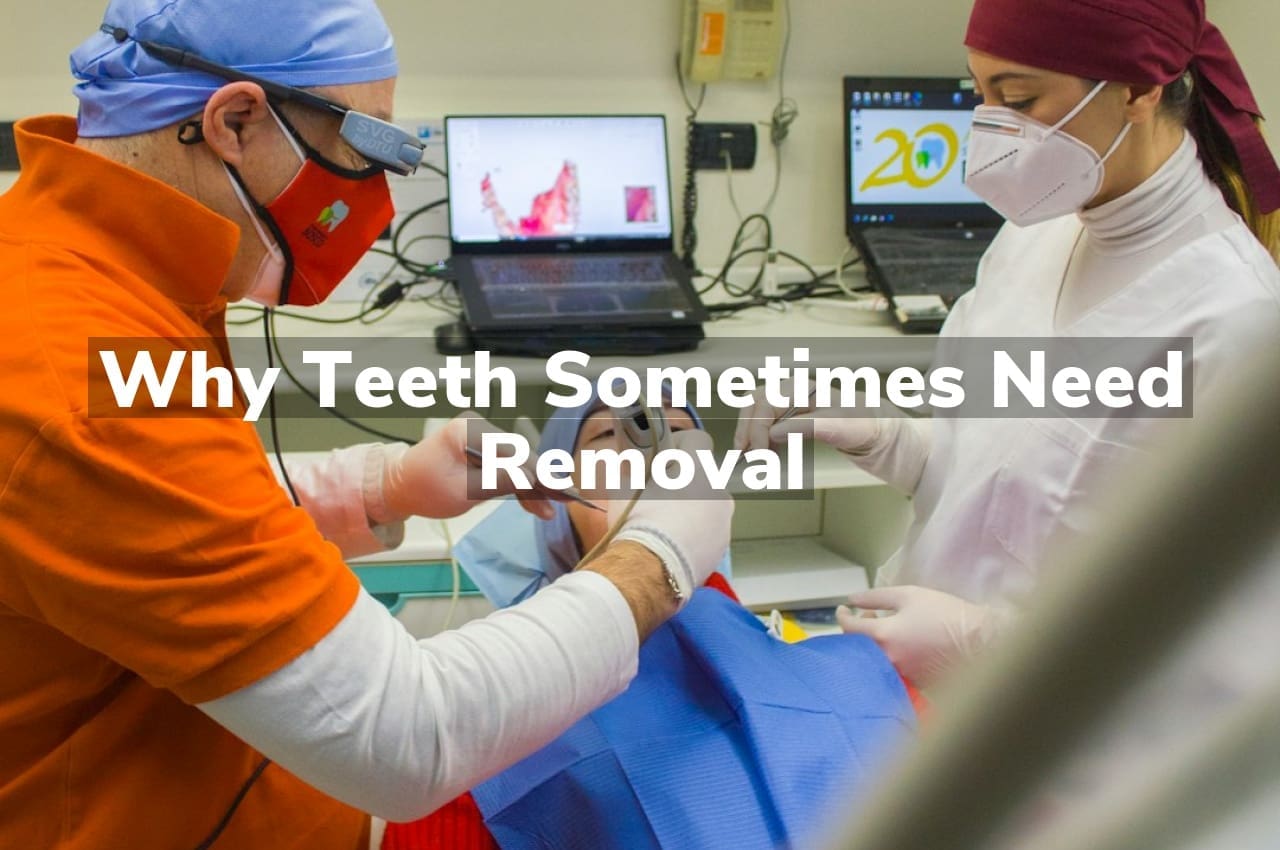Have you ever wondered why teeth sometimes need to be removed? Teeth may require extraction due to various reasons, including severe decay, infection, or overcrowding, which can impact overall oral health. This process is typically considered when other treatment options are not viable or have failed to resolve the issue.
Overcrowding in the Mouth
Overcrowding in the mouth is a common dental issue that can lead to the need for tooth removal. This condition occurs when there is not enough space within the jaw for all of the teeth to fit normally. Overcrowding can cause teeth to grow in crooked, overlap, or twist, sometimes leading to discomfort, difficulty in cleaning, and a higher risk of dental diseases. In such cases, dentists may recommend the removal of one or more teeth to provide the remaining teeth with enough space to align properly. This procedure helps in preventing further dental complications and promotes better oral health.
The practice of removing teeth to address overcrowding and other dental issues has a long history. For a deeper understanding of how dental practices have evolved, particularly in managing overcrowded mouths, you might find the article Tooth Extraction Through the Ages insightful. It explores the development of tooth extraction techniques from ancient times to modern dentistry, highlighting how this practice has been a fundamental part of oral health care for centuries.
Impacted Wisdom Teeth
Impacted wisdom teeth are a common reason why teeth sometimes need removal. These are the last set of molars to develop and often do not have enough room to emerge properly, leading to them becoming trapped or impacted within the jawbone or gums. This condition can cause a range of issues, including pain, infection, and damage to adjacent teeth. The complexity of their position makes them more susceptible to decay and gum disease since they are harder to clean effectively.
In some cases, the best course of action to prevent further dental complications is the removal of impacted wisdom teeth. This decision is typically made after a thorough examination and imaging tests to assess the position and health of the teeth. For those seeking professional care for this condition, Expert Tooth Removal in Warrington offers a comprehensive approach to address and manage impacted wisdom teeth, ensuring the well-being and comfort of patients.
Severe Tooth Decay
Severe tooth decay is a common reason for the removal of teeth. When decay progresses beyond the surface of the tooth, it can affect the deeper layers, leading to significant damage. This condition not only compromises the structural integrity of the tooth but can also lead to infections that affect surrounding tissues and potentially enter the bloodstream. In such cases, removing the affected tooth may be considered to prevent further health complications.
Gum Disease Complications
Gum disease, also known as periodontal disease, is a significant health concern that can lead to various complications if not addressed properly. It starts with bacteria build-up in the mouth, leading to inflammation of the gums. If untreated, this condition can progress to more severe stages, potentially resulting in tooth loss due to the destruction of the tissue that supports your teeth. Moreover, gum disease has been linked to other health issues, including heart disease and diabetes, highlighting the importance of maintaining good oral hygiene. For those seeking professional dental care, Dr. Caren Franz DMD PC is a trusted Warrington Dentist dedicated to providing comprehensive dental services.
Orthodontic Treatment Requirements
Orthodontic treatment often necessitates the removal of teeth to address various dental issues effectively. This step is sometimes essential to create enough space in the mouth, allowing for the proper alignment of the remaining teeth. It can also be crucial in correcting bite problems and improving overall oral health. The decision to remove teeth as part of orthodontic treatment is based on a thorough examination and is aimed at achieving the best possible outcome for dental health and aesthetics.
Conclusion
For more insights, call us at 215-918-5630 or read reviews on Google Maps.





